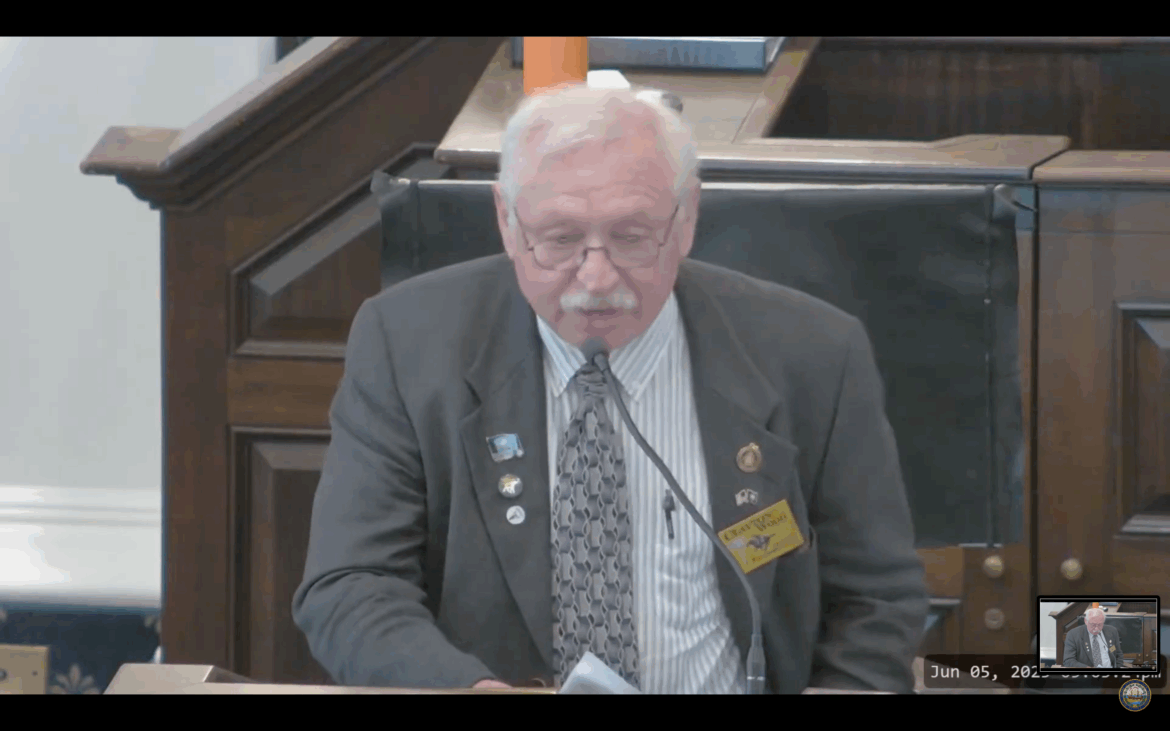By GARRY RAYNO, InDepthNH.org
CONCORD — The House made it more difficult to vote by absentee ballot passing several bills that will require more information to vote in absentia Thursday.
The House also failed to change the state’s primary election day from September to June, and decided cities and towns have to purge their voter checklists yearly instead of once in a decade.
The House voted to require that people registering for an absentee ballot will now have to present proof they are a United States citizen to receive the ballot.
Supporters of Senate Bill 218, said the bill simply brings the requirements to register for an absentee ballot in line with registering to vote in person by adding a person needs to prove citizenship through a birth certificate, passport or naturalization papers.
Women who changed their names when they married would need to provide proof of the change from their maiden name.
Rep. Connie Lane, D-Concord, said advocates for the change produced no evidence there is a problem with absentee voting.
“The burdens far outweigh the speculative harm brought forward to support it,” she said.
The bill passed on a 192-149 vote and goes to the Senate because of changes the House made.
The House also approved Senate Bill 287 which will require a photo ID to obtain an absentee ballot.
Lane said there has never been voter fraud involving an absentee ballot.
She said the amendment was done at the 11th hour and without the knowledge of the disabilities community, which has maintained the requirement would make it impossible for home-bound folks to vote.
It would require someone to have a copy machine at home or to have an application notarized in order to obtain a ballot, she said.
“You cannot make it to the polls, but we’re not going to give you another choice,” she said.
But Rep. Ross Berry, R-Weare, said it brings absentee voting inline with in person voting. Right now the only requirement is a signature, he said.
The bill passed on a 187-149 vote and goes to the Senate because of the House changes.
The House also approved a bill that would require town and city clerks to purge their checklist annually. Currently the lists are purged every 10 years.
Another bill already passed would have purged the lists every five years.
A voter would have to vote in one of the last five years to avoid being removed from the checklist under the bill passed Thursday.
The House also passed a bill clarifying and adding new restrictions on public employees concerning electioneering while on the job.
No Primary Change
The House voted down Senate Bill 222 which would have changed the state’s primary from the second Tuesday in September to the second Tuesday in June.
Democrats wanted the change to begin with the 2028 elections, while Republicans opted for the 2026 elections.
Supporters said it would end the current calendar which serves to make New Hampshire election’s the incumbents’ protection plan because of the short time between the primary and general elections.
But Rep. Ralph Boehm, R-Litchfield, said June is a busy time for lawmakers as they try to wrap up the end of the session and the filing period would be in March which is also one of the busiest time in Concord with hearings on bills and also town meeting time which will make a lot of work for town and city clerks and the Secretary of State’s Office.
He noted last year the House voted down a June primary favored by the Senate three times in favor of an August primary.
The bill failed on a 170-168 vote and was tabled.
Coos County
The House approved Senate Bill 180, which would designate Coos County as a distressed place-based economy which qualifies it for federal programs.
The House attached a bill stalled in the Senate that would have stricter landfill siting requirements and a moratorium on new landfill permits
The bill passed on a 323-6 vote and goes back to the Senate because of changes to the bill.
Fentanyl
The House passed Senate Bill 14 which increases the penalties for fentanyl possession and imposes mandatory sentences.
If a person is caught with 20 grams of fentanyl, the mandatory sentence would be three-and-a-half years in prison.
With 50 grams of fentanyl, the person would be sentenced to five years in prison.
The bill goes back to the Senate due to the changes.
Garry Rayno may be reached at garry.rayno@yahoo.com.





